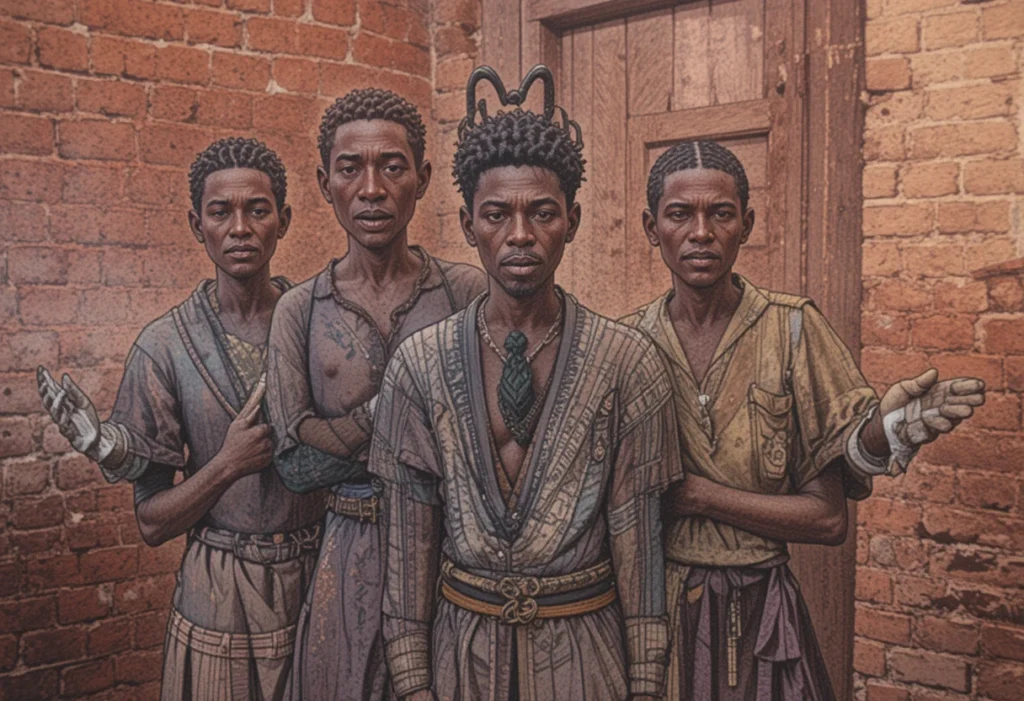Understanding language is key to unlocking the values, traditions, and mindset of a culture. One such phrase that carries rich meaning in Haitian Creole is “yon bet debaz”. Though it might translate literally to “a basic animal,” this expression carries weight far beyond its surface definition.
In this comprehensive guide, we explore every dimension of “yon bet debaz”—its origin, meaning, societal usage, linguistic importance, and modern-day influence, especially in the digital era. Whether you’re a linguist, cultural enthusiast, or just curious, this article offers a detailed understanding of a phrase that’s as powerful as it is colloquial.
What Does “Yon Bet Debaz” Mean?
Let’s begin with the basics. In Haitian Creole:
- Yon = One or a
- Bèt = Animal or beast
- Debaz = Basic or crude
When combined, “yon bet debaz” essentially refers to a person who is seen as uncultured, rude, or lacking in social grace. While the phrase sounds like an insult, its usage is deeply contextual—sometimes harsh, sometimes humorous, and often packed with cultural nuance.
Historical Origins of the Phrase:
Haitian Creole evolved from a complex history of colonization, slavery, and cultural fusion. Rooted in French and African linguistic traditions, Creole expressions like “yon bet debaz” reflect the lived experiences of Haitian people. Historically, the phrase may have developed as a way to classify behavior not aligned with societal norms. It served as a subtle tool of social regulation—a verbal warning for those stepping outside the boundaries of expected conduct.

As communities rebuilt themselves after slavery and colonialism, language became a way to preserve order and reinforce moral standards. Phrases like “yon bet debaz” helped differentiate between refined conduct and animalistic, undesirable behavior. It was also a tool used by elders and parents to discipline youth and instill a sense of pride in proper manners and upbringing.
The Cultural Significance of Calling Someone “Yon Bet Debaz”:
This phrase is more than just an insult. It’s a judgment of character, a critique of upbringing, and a reflection of societal expectations. In many Haitian communities:
- Civility is valued – Proper manners and polite behavior are seen as essential to individual and communal dignity.
- Social harmony is protected – Disruptive or disrespectful behavior is discouraged to maintain peace and unity.
- Respect for others is taught from a young age – Children are raised with strict codes of conduct, emphasizing humility and decency.
- Community reputation matters – How a person behaves reflects not just on themselves but on their family and neighborhood.
- Cultural pride is tied to self-control. Emotional restraint and proper conduct are signs of personal strength and cultural identity.
So when someone is called yon bet debaz, it implies more than bad behavior—it suggests the person lacks the basic decency required in society. It’s a direct affront to one’s dignity, upbringing, and social value.
Regional Variations in Usage:
The phrase “yon bet debaz” varies in meaning depending on where it’s used in Haiti. In cities like Port-au-Prince, it’s often used sarcastically or humorously in casual conversation. However, in rural areas, the phrase is usually taken more seriously and can be quite insulting.
Some communities even modify the phrase to change its tone—“yon gwo bet debaz” intensifies the insult, while “ou pa yon bet debaz non” offers a softer, corrective approach. These variations reflect the cultural and linguistic richness of Haitian Creole. The phrase’s emotional weight often depends on social familiarity. Age and social hierarchy also influence how it’s received.
How Does “Yon Bet Debaz” Reflect the Power of Linguistic Simplicity?
From a linguistic perspective, “yon bet debaz” is a striking example of how a short, simple phrase can carry deep cultural and emotional meaning. It relies heavily on metaphor, equating someone’s behavior to that of a wild or uncivilized animal. The phrase also embodies minimalism, using just three words to express layered judgments about behavior, manners, and social status.
What makes it even more powerful is its contextual elasticity—its meaning can shift dramatically depending on tone, body language, and the relationship between the speaker and listener. Together, these features make “yon bet debaz” a true linguistic and cultural phenomenon.
The Evolution of “Yon Bet Debaz” in Modern Haiti:
As with many traditional expressions, “yon bet debaz” has evolved in the digital age. Today, you’ll often see it used on:
- Facebook posts
- Twitter threads
- TikTok skits
- WhatsApp voice notes
Its use has shifted from being strictly condemnatory to often humorous or ironic. For instance, a friend might jokingly say, “Gade jan ou manje – yon bet debaz wi ou ye!” (Look at how you’re eating – you’re such a basic animal!).
This ironic use reflects how Haitian youth are reinterpreting old expressions to fit new realities.
Real-World Examples of Use:
Serious Use:
At a family gathering, someone starts behaving rudely—interrupting others, speaking loudly, and showing no respect. In this context, someone might say, “Li konpòte l tankou yon bet debaz.” This phrase criticizes the person’s behavior, implying they’re acting with no manners or dignity, much like an uncivilized creature. It’s meant as a strong social correction.
Playful Use:
During a friendly game night, one person keeps losing and making silly mistakes. A friend might laugh and say, “Ou pèdi tout jwet la! Yon bet debaz ou ye!” Though it uses the same phrase, here it’s said jokingly to tease someone. It softens the meaning and turns it into a humorous, affectionate comment.
Impact on Social Norms and Class Perceptions:
Expressions like “yon bet debaz” are powerful because they help reinforce cultural boundaries. In Haitian society, where class consciousness and reputation matter deeply, being perceived as uncivilized can have lasting effects on how someone is treated or seen in the community.
It can also reveal internal class divisions—often, someone from a higher social standing may use this term to belittle someone from a lower background, furthering class-based stereotypes.
How Social Media Has Reinvigorated the Phrase?
- Memes: On platforms like Facebook and Instagram, “yon bet debaz” appears in memes with exaggerated facial expressions, highlighting absurd or uncivil behavior. These visuals make the phrase relatable, humorous, and easily shareable among users across cultures.
- Short-form Videos: Apps like TikTok and YouTube Shorts feature comedic skits where people act out ridiculous or rude scenarios, ending with the label “yon bet debaz.” These videos spread the phrase to younger audiences through humor and relatable content.
- Comment Sections: In online debates or controversial posts, users drop “yon bet debaz” in the comments to criticize public figures or influencers. It’s a quick way to call out inappropriate behavior in a culturally expressive, often viral manner.
- Cultural Exposure: As the phrase circulates in viral content, even non-native speakers encounter it. This growing exposure has made “yon bet debaz” part of the digital lexicon for people curious about Haitian slang, behavior, and cultural expressions.
Educational Importance for Creole Learners:
For students learning Haitian Creole, understanding expressions like “yon bet debaz” is essential for gaining cultural and conversational fluency. This phrase offers insight into the societal values of respect, behavior, and social expectations. It also teaches learners the unspoken rules—what is acceptable or offensive in different social settings.

Beyond vocabulary, it strengthens idiomatic comprehension, making speech more natural and contextually accurate. Including culturally loaded expressions like this in language curriculums enhances real-world communication skills and fosters a deeper appreciation of Haitian society and the emotional layers within its language.
How to Use the Phrase Responsibly?
- Use in Informal Settings: “Yon bet debaz” is best reserved for informal or casual conversations. It should not be used in workplaces, academic settings, or formal environments where such expressions may be seen as inappropriate or disrespectful, especially by those unfamiliar with its cultural context.
- Gauge the Tone: If you’re using the phrase humorously, make sure the tone of the conversation is playful and not confrontational. Misjudging tone can easily turn a joke into an insult. Delivery and voice inflection matter a lot when using culturally loaded expressions like this.
- Understand Your Audience: Before saying “yon bet debaz,” consider who you’re speaking to. While friends may laugh, others—especially older or more traditional individuals—might find it rude. Understanding your audience’s values and communication style helps prevent misunderstandings or unintentional offense.
- Avoid Using with Strangers: This phrase should not be used casually with strangers or acquaintances. Since it can come off as highly judgmental, it’s safer to use it only around people who understand the context and won’t misinterpret your intent or tone.
Similar Phrases in Haitian Creole:
Understanding similar expressions can help contextualize yon bet debaz:
- “Ou san wont” – You have no shame
- “Ou pa gen edikasyon” – You lack proper upbringing
- “Ou sal” – You’re dirty (in behavior, not hygiene)
- “Ou santi w twò enpòtan” – You think you’re too important
These phrases, like “yon bet debaz,” offer powerful tools to critique or correct behavior.
The Phrase as a Reflection of Haitian Identity:
Ultimately, “yon bet debaz” is more than just slang. It reflects the Haitian spirit—a mix of humor, discipline, social order, and resilience. It showcases how language can be both a sword and a brush, cutting through nonsense while painting the reality of community expectations.
The phrase embodies how Haitians value self-control and public image, using words as tools for both correction and comedy. It also demonstrates how speech becomes a form of resistance, survival, and storytelling. In many ways, it preserves cultural values in everyday conversation and keeps traditional wisdom alive in modern dialogue.
FAQs:
What makes “yon bet debaz” different from a regular insult?
Unlike a simple insult, “yon bet debaz” critiques someone’s entire behavioral character. It questions their manners, upbringing, and social awareness, making it more layered and culturally meaningful than everyday name-calling.
Can “yon bet debaz” be considered a form of social control?
Yes, it often functions as informal social control in Haitian society. By calling out crude behavior, the phrase helps reinforce communal expectations and maintain public decency, especially in tight-knit communities.
Is “yon bet debaz” ever used in Haitian music or pop culture?
Absolutely. The phrase occasionally appears in kompa lyrics, stand-up comedy, and social media skits to critique or humorously reflect on behavior. It has become a versatile cultural symbol in modern Haitian entertainment.
How do elders perceive the use of “yon bet debaz” among youth?
Older generations often take the phrase more seriously and may use it to discipline or correct behavior. Some elders view its casual use by youth as disrespectful or a sign of declining traditional values.
Can “yon bet debaz” be empowering in any context?
In rare, ironic contexts, yes. Some use it humorously to own their flaws or call out societal hypocrisy. When used intentionally, it can flip the insult and make a statement about authenticity or rejecting fake social norms.
Final Thoughts:
“Yon bet debaz” is not a phrase to be taken lightly. It’s an intricate expression woven with cultural, historical, and linguistic threads. Its modern resurgence on social media, its educational value, and its social implications all point to the deep significance of language in Haitian society.
Understanding and respecting this phrase allows us to better appreciate not just the words, but the culture and people behind them. It reminds us that language is a living archive of shared values. When we explore expressions like this, we deepen our cross-cultural empathy and communication. Every phrase tells a story—and “yon bet debaz” tells many.
Related post:







